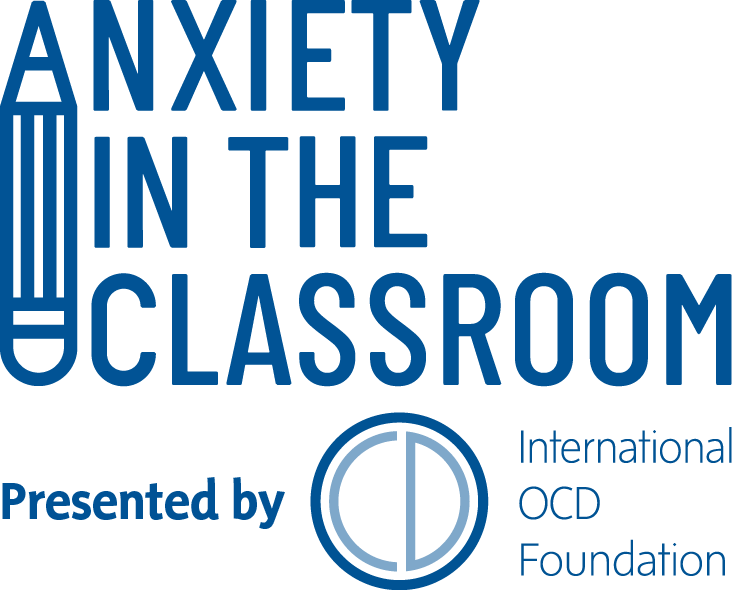Who to Bring to a School Meeting
There are several people outside of school staff who might be helpful to include in meetings about your child in the school setting. These include your child themself, your child’s therapist, a school advocate, and/or an attorney.
When do you involve your child?
Depending on your child’s age and/or developmental stage, it may be a good idea to involve them in any meetings with the school that they are allowed to be in. They can provide the most accurate, first-hand account of what their anxiety/OCD symptoms are like, and how they interfere with their school work. Having your child present might also increase the empathy in the room — it will remind all parties involved why everyone is here and who they are working to help, instead of speaking about them as if they were an abstract concept.
Additionally, having your child involved will help get “buy-in” for whatever the final plan ends up being. This will help ensure continued adherence to the plan as time goes on. Finally, being involved in this process will help your child practice their own self-advocacy. This is a very valuable skill for them to have, especially as they get older and “age out” of being able to have you help them!
When do you involve a therapist?
If your child sees a therapist, and that therapist is supportive of your efforts to get your child assistance in school, they might be a good resource for you. With your permission and consent, they can provide expert consultation and opinion to school staff about your child’s treatment progress and how exactly school-based accommodations would support it. Their therapist has a special expertise about your child and their specific anxiety/OCD symptoms, and thus can expertly help connect the dots between their symptoms and their performance.
A therapist can even be helpful in designing an IEP or IAP, providing their clinically-based recommendations for which supports to provide and for how long they should be provided. If possible, the therapist’s recommendation for specific IEP/IAP accommodations should be written out and provided to the school in advance of any meeting. Finally, if they are willing, a therapist can provide ongoing consultation to school personnel. This can be helpful to avoid staff burnout, clarify any perceptions about the student’s behavior, and assist with applying strategies to real-time issues.
When do you involve an educational advocate?
It can be helpful for caregivers to consult with an educational advocate or an educational advocacy agency from the outset to have an objective perspective on the journey they are about to embark on. This doesn’t mean you need to hire someone — so much depends upon your comfort level and financial resources. Many caregivers want to have an educational advocate guiding them through the process from the beginning, if only to feel confident that things are proceeding as they should, that the right questions are being asked, and that there is a sense of clarity and accountability at each step.
Some caregivers are equally comfortable proceeding on their own until a clear problem arises and they feel out of their depth. It’s hard enough just being the caregiver of a child with anxiety and/or OCD. It can be very difficult to know what questions to ask or how to respond after something goes awry - it’s harder still to be able to tell when things might be leading down the path to a dispute. Knowledge of the regulations, case law, policy, and district politics are only the beginning. When it’s your own child, it is virtually impossible to separate emotion from reason in the heat of the moment.
Because educational advocacy is not a credentialed profession, caregivers are often faced with confusion when deciding who to hire. It is usually helpful to start by asking for recommendations from specialists (such as independent evaluators or clinicians) who know their child’s needs. It is wise to choose an educational advocate who is experienced in helping families whose children struggle with similar conditions as yours. It can be helpful to speak with two or three educational advocates to compare. After doing your research, choose someone with whom you feel comfortable, someone you feel you can trust to give honest, compassionate and thoughtful advice, even if it's advice you’d rather not hear.
When do you involve an attorney?
Attorneys specialize in preparing cases for formal appeal proceedings before school district hearing officers. This is a process which can be exceedingly costly, acrimonious, and time-consuming. It is not something that either families or attorneys enter into without very careful consideration of alternative means of dispute resolution. It can be useful to consult with an attorney whenever it appears that a dispute with the district is unresolvable.
A wise and careful attorney will help you assess all the strengths and weaknesses of your case, and may suggest strategies for resolving disputes with a school advocate’s assistance instead. That said, it is rare that your dispute would need to escalate to the level of an attorney — of the thousands of cases received around the country annually, only a small minority end up in a formal appeals process. The odds for settlement are good when caregivers have expert assistance from experienced school advocates and/or attorneys.



